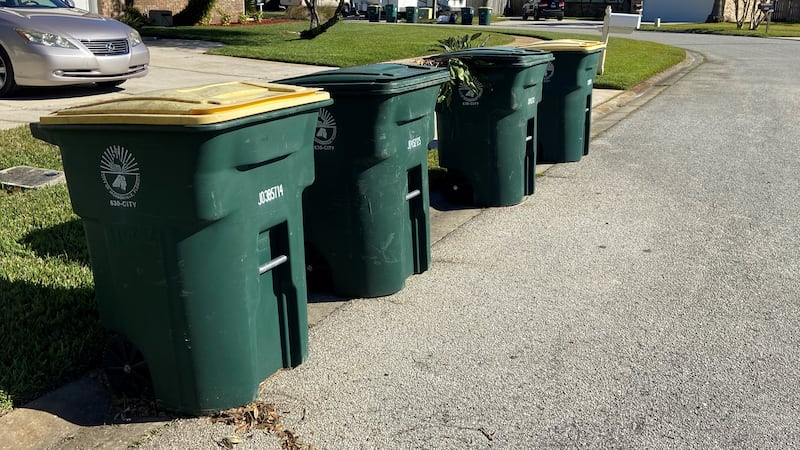His family’s business was stolen by armed men who stormed into its offices and forced everyone out.
That’s what Dr. Javier Garcia Bengochea, a Jacksonville neurosurgeon said happened nearly 60 years ago in Cuba.
But now for the first time ever, he’s able to sue those using his stolen property in a U.S. court.
TRENDING:
- I-295 toll express lanes to open this weekend in Jacksonville: What you need to know
- Jacksonville police officer taken to hospital after crash, suspect arrested
- JSO: 'Disoriented and confused' 72-year-old man picked up by Z-trip driver reported missing
- Clay County sheriff's wife: ‘This crazy heifer right here has been stalking my husband'
- Missing pregnant woman found slain with baby cut from womb, Chicago police say
If he wins, it could change the way U.S. and foreign companies do business on the communist island.
Dr. Garcia shared photos with Action News Jax that showed La Maritima Parreño port facility In Santiago de Cuba. In its heyday, it was a booming business that was founded Garcia’s family.
“A relative of mine put together investors started this business in 1905 and ultimately bought the land,” said Garcia. “Really turned what was a muddy riverbank into a first world enterprise. In fact we had the first refrigerated dock in the Caribbean.”
But the business took a devastating blow in 1960 when armed men barged into the port’s offices and demanded that everyone get out.
“They were stealing the business,” said Garcia.
They were Fidel Castro’s communist revolution, which led to a nationalization of private businesses, even those owned by Cuban citizens.
The owners of the confiscated properties have been waiting decades for a chance to sue for the illegal use of their properties.
On May 2 Garcia got his chance.
It comes after a historic decision by President Trump to fully enact Title III of the Helms-Burton Act.
It allows U.S. and naturalized Cuban nationals to sue companies that exploit the seized property on the island.
STAY UPDATED: Download the Action News Jax app for live updates on this breaking story
One of the companies Garcia alleges is doing just that is Carnival Cruise Lines.
Cruise liners didn’t start showing up until 2015 which is after President Obama began trying to ease relations with the Castro regime.
“At last count there are 11 cruise lines trafficking in my stolen property,” said Garcia.
Many criticize Title III for what’s perceived to be its extraterritorial nature; in other words, what jurisdiction can a U.S.court have in Cuba?
Garcia said the criticism is misplaced.
“Title III faithfully, almost to the letter, reflects the intent of international law that prohibits confiscating property, that prohibits expropriation without fair and prompt compensation,” said Garcia.
Garcia holds a certified claim that was issued to his cousin, Alberto Parreño, by the federal government.
He said justice is long overdue.
“I guess as a neurosurgeon I’m more of a fixer than a doer and I simply, I can’t just sit back and see the system not work,” said Garcia.
"He kept waiting for this day."
— Lorena Inclán (@LorenaANjax) May 16, 2019
A #Jacksonville doctor says he's carrying the torch for his family to fight for justice. How his lawsuit against @CarnivalCruise could impact how companies do business in #Cuba. The story is next at 5:30 @ActionNewsJax #Havana #Travel #Florida pic.twitter.com/70GHgls0Tr
And he’s not the only person or entity suing for damages. Exxon Mobile is seeking more than $71 million in actual damages for an oil refinery it says was confiscated by the Castro regime.
Jacksonville University professor of history Jesse Hingson said settling these claims is crucial.
“It should be the first step before we even talk about ending the embargo. It has to be, in order to reconcile between the United States and Cuba,” said Hingson.
Hingson said the lawsuits could also create tension between the US and allies like Spain and Canada, two of the largest investors in Cuba.
“People who may be watching this maybe thinking, 'This seems like an uphill battle. This seems so complicated. Why not just move on?’ What would you tell them?” asked Lorena Inclán.
“That’s a difficult question to answer because it’s really, I don’t know that the answer is very good for them to hear,” said Garcia. “This is not a right or left issue. It’s a right versus wrong issue.”
Garcia said he’ll let the jury decide on what the damages should be but morally he believes he’s already won.
He only wishes his cousin were alive to see it.
“What do you think he would say today? asked Inclán.
“He kept waiting for this day where he could assert his rights. I think they’d all be very happy,” said Garcia.
According to Garcia, it’s not just companies that could be held liable but also travel agents, universities, and civic groups that plan trips to Cuba and knew, or should have known, that the some of the properties they’re flocking are confiscated.
Carnival Cruise Lines provided Action News Jax with the following statement:
“We sought and received formal approval from the U.S. government OFAC (Office of Foreign Assets Control) under the required rules before we ever began sailing to Cuba in 2016. We are continuing our regular schedule of cruises to Cuba under these established guidelines.”
Cox Media Group





